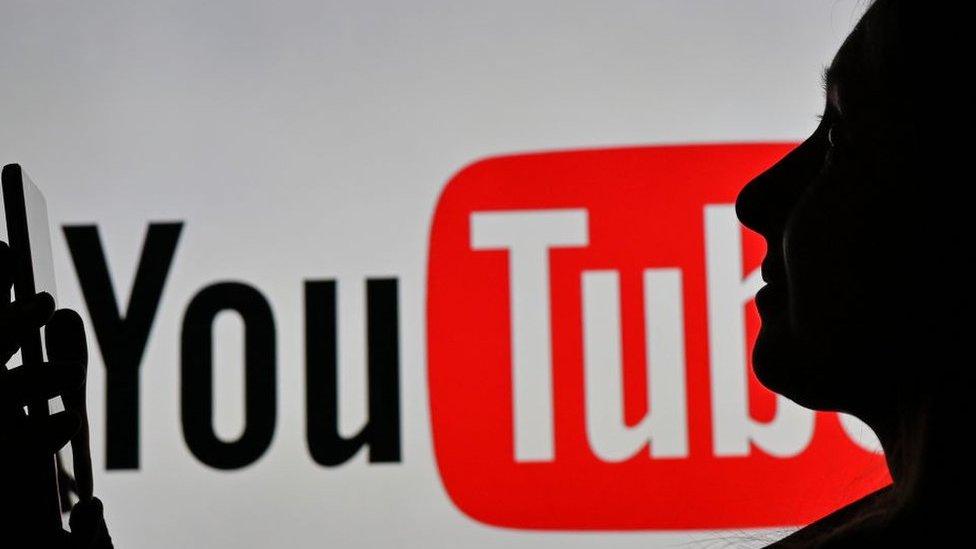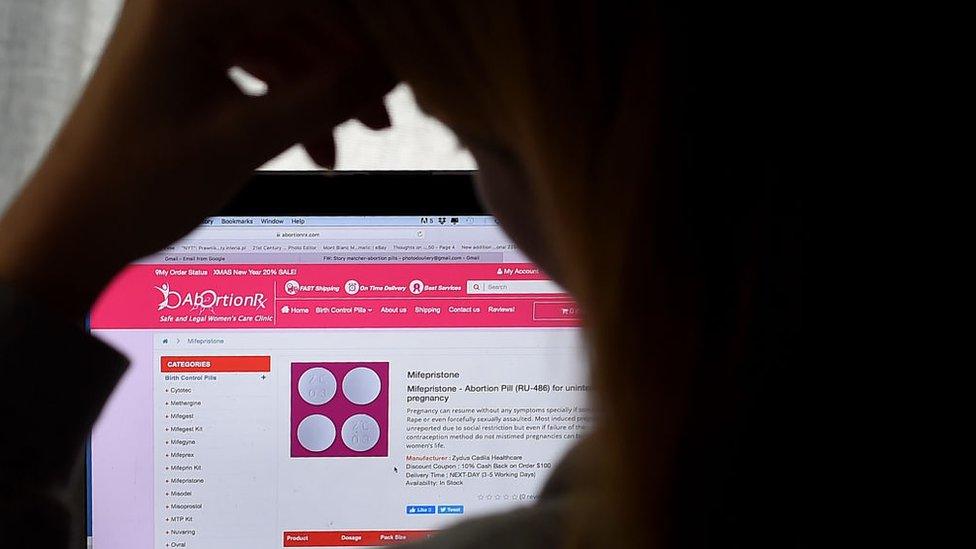Abortion: YouTube removes misinformation videos
- Published

YouTube has said it would remove content promoting unsafe abortions.
Videos including false claims about abortion safety will be included in its misinformation policies, the company tweeted.
YouTube said it will provide factual health information in information panels on termination videos and search results.
US gender justice group UltraViolet says this will help protect public health but tech firms must do more.
Shaunna Thomas, its co-founder and executive director, said immediate action is needed to prevent a "disinformation epidemic" and provide pregnant people with reliable reproductive health information.
She said demand for this has become even more urgent after the reversal of Roe v Wade.
YouTube said its removal of content advising on and promoting unsafe abortion methods, external had begun on Thursday and would be "ramping up over the next few weeks".
Allow X content?
This article contains content provided by X. We ask for your permission before anything is loaded, as they may be using cookies and other technologies. You may want to read X’s cookie policy, external and privacy policy, external before accepting. To view this content choose ‘accept and continue’.
Ms Thomas said: "TikTok, Twitter and Meta must follow YouTube's lead, and stop the spread of this dangerous misinformation."
'Life-threatening'
UltraViolet was among more than 200 signatories to a letter sent to YouTube, Meta, TikTok and Twitter earlier this month claiming these companies were "currently enabling, and profiting from, dangerous medical disinformation".
US medical providers and non-profit organisations that signed the letter said content promoting alternatives to approved abortion medication was particularly dangerous and required immediate action from firms.
Posts promoting toxic herbs as a method have been recently seen on social media, raising alarm for medical experts.
The US Food and Drug Administration-approved medications mifepristone and misoprostol are considered to be the safest and most effective medical way to end an unwanted pregnancy.

The promotion of "untested" abortion methods and theories on social media "is not just unsafe - it's life-threatening", said Ms Thomas.
She added while YouTube's vow to tackle abortion disinformation was a "significant improvement", its criteria for identifying abortion-related medical disinformation should be extended to other Google-owned products.
The Center for Countering Digital Hate (CCDH) published a report, external in June alleging Google Search and Maps were directing some users searching for abortion clinics and information to "fake" clinics.
In so-called "trigger states" where abortion could become illegal following the US Supreme Court's overturning of Roe v Wade, the CCDH's research found 11% of Google searches for abortions led users to clinics promoting alternatives to abortion.
Callum Hood, head of research at CCDH, said tech companies "cannot claim to take abortion misinformation seriously until they tackle the problem in all its forms".
He said this includes acting on misleading adverts for "fake abortion clinics" and content promoting "unproven and potentially unsafe" abortion reversal treatments.
Google has been approached for comment.
Related topics
- Published17 May 2022

- Published28 June 2022
